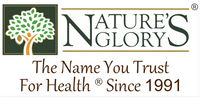Cholesterol is a type of body fat essential for healthy cell development. Your body needs it to make hormones, Vitamin D, and substances that help digestion. Your body can create the cholesterol it needs.
If you have too much cholesterol in your blood, it can combine with other substances to form plaque and stick to the walls of your coronary arteries. These arteries supply oxygen-rich blood to the heart. Your coronary arteries will then become narrow or blocked due to plaque buildup, causing your heart to lack blood, oxygen, and nutrients.
Types of Cholesterol
Cholesterol is not water-soluble and needs to be carried in the bloodstream by liquid-protein complexes called lipoproteins.
The two types of lipoproteins play essential roles in the development of coronary heart disease.
The low-density lipoprotein (LDL) carries cholesterol from the liver to different body parts where they are needed. It tends to deposit cholesterol on blood vessel walls, forming plaques. LDL-cholesterol is known as the “bad” cholesterol.
The high-density lipoprotein (HDL) carries excess cholesterol from different body parts to the liver. It is known as the “good” cholesterol. High HDL-cholesterol levels may help reduce our risk of developing heart disease.
Causes of High Cholesterol
Various factors may contribute to unhealthy cholesterol levels. These include, but are not limited to:
- Age. Our body’s function in clearing cholesterol from our blood decreases as we age.
- Family history of high cholesterol. Some people have a genetic predisposition to high cholesterol, even in people with healthy lifestyles.
- Increased dietary intake of cholesterol. Cholesterol is only found in animals, so meat and dairy products are the sources of cholesterol in our diet.
- Obesity. Being overweight is not just an indicator of a high-fat diet and an unhealthy lifestyle. It is also an independent risk factor for high cholesterol.
- Physical inactivity.
- Smoking. A substance in a cigarette called acrolein hinders HDL’s ability to retrieve harmful LDL cholesterol and return it to the liver for processing.
- Prevailing Health Conditions. Certain pre-existing health conditions can affect our cholesterol levels. Type 2 diabetes lowers our good cholesterol and raises our bad cholesterol. In return, it may increase our risk of heart disease. Xanthelasma is caused by a buildup of cholesterol deposits under the skin surrounding our eyelids. This, too, is also often linked to high cholesterol.
- Medications. Some medications, like oral contraceptives, can increase cholesterol. You should have your cholesterol levels regularly checked if you are on a particular medication regime.
Foods To Eat and Avoid
Foods that lower cholesterol fast include those high in fibre and unsaturated fats.
- Fibre helps reduce cholesterol and LDL-cholesterol levels by excreting through a bowel movement. Good sources of fibre include:
- Fruits
- Vegetables
- Wholegrains, such as brown rice
- Wholemeal bread
- Oats and barley
- When consumed as a replacement for saturated fats, unsaturated fats can help lower LDL-cholesterol. Foods rich in unsaturated fats include:
- Nuts and seeds
- Avocado
- Healthy cooking oils, such as canola, sunflower, olive, corn, peanut, soybean, and sesame oils
- Oily fishes, such as salmon, cod, saba, sardine, tuna, and mackerel (rich in omega-3, a type of polyunsaturated fat)
Foods that increase LDL-cholesterol levels are rich in saturated fat. It mainly comes from:
- Fried food
- Baked goods
- Packaged goods with “partially hydrogenated vegetable oil” as an ingredient
Good examples include french fries, potato chips, pastries and cookies.
When To Expect Cholesterol Improvement
It may take weeks to months to see improved cholesterol levels with diet changes. Coupled with physical activity, you will see good results sooner. Remember, consume a varied and well-balanced diet not only to improve cholesterol count in mind but also to reduce the risk of developing chronic diseases.
You may want to keep a journal to monitor your meals and snacks. Identify high-fat foods and think about better food alternatives. It will lead you to a heart-healthy, cholesterol-improving diet.
Supplements for Cholesterol
Dietary therapy can help lower bad cholesterol levels. Coupling it with health supplements can further lower bad cholesterol to a certain degree. Supplements like fish oil, psyllium, and soy protein keep LDL-cholesterols at bay. Niacin can boost HDL-cholesterol and lower LDL-cholesterol, but consume only when your doctor advises you.
Conclusion
Proper diet, regular physical activity, and appropriate health supplements can reduce harmful cholesterol levels. At Nature’s Glory, we offer various products that can help you improve your cholesterol count – from organic seeds, fruits, vegetables, and brown rice to fibre-rich and cultured drinks.

